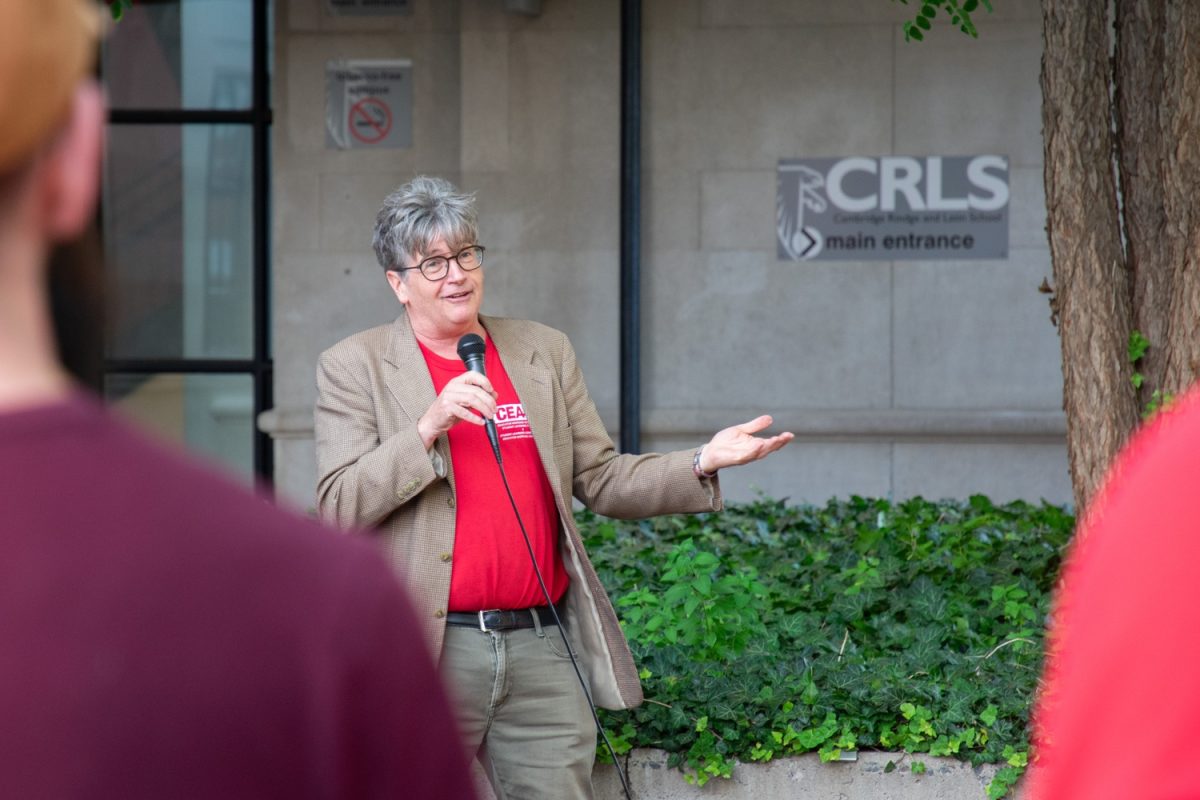During a routine school committee meeting on October 1st, Mr. Dan Monahan, an educator and Cambridge Education Association (CEA) president, had his speaking time abruptly cut off. Mr. Monahan intended to raise concerns about the superintendent’s hiring process and the school district’s handling of Title IX policy violations. Mr. Monahan’s speech being cut off has raised questions about the fairness of the committee’s public speaking rules, which limit the speaker to three minutes.
“I had no idea this was coming and just assumed I would be granted the customary six minutes,” Mr. Monahan said in an interview with the Register Forum. The committee’s official rules limit speakers to three minutes, but in practice, those representing larger groups, like educators, are sometimes granted six minutes. However, during this case, Mr. Monahan was cut off after just three minutes. “I was frustrated that I would not be able to share important comments representing educator perspectives and angry that the educator voice was being silenced,” he added.
The incident occurred during the public comment section of the meeting. Mr. Monahan, representing district educators, sought to bring attention to issues including the lack of transparency in the superintendent’s hiring process, “which the committee still has not talked about in public,” and violations of the district’s Title IX policy, which governs how schools handle sexual harassment and discrimination.
According to Mr Monahan, the decision to cut off his time may not have been related to the content of his speech but a tactical move by the committee. “I suspect it is because I often ask difficult questions and share perspectives that challenge the administration and school committee,” he speculated.
The committee’s decision to enforce the three-minute speaking limit aligns with School Committee rules, outlined in Section 4.2. Mr. José Luis Rojas, another committee member, explained to the Register Forum the rationale behind the time enforcement. “Legally, each speaker is entitled to 3 minutes, and the city draws no distinction between types of speakers,” Mr. Rojas said in response to the controversy. He added that this time limit is in line with state law and the practices of neighboring municipalities.
The policy states that the Chair can reduce the time to two minutes if many speakers sign up, but in Mr. Monahan’s case, he was given the full three minutes. While the rules are clear, Mr. Monahan voiced concerns about the broader implications. “The district has violated their own Title IX policy about investigations several times, but there is no internal process to address these grievances,” he stated, stressing that his cut-off speech would have addressed critical issues impacting educators and the wider school community. Mr. Monahan also reflected on the need for consistency when applying these rules. “Of course, we want to hear more about everyone’s perspective—not only educators but also parents and students.”
“At the end of the day, it’s not just about time limits; it’s about making sure all voices are heard—especially when they’re raising issues that affect our students and community,” Mr. Monahan concluded, calling for a balance between rules and real dialogue. “If we can’t have that, we’re not just cutting time—we’re cutting progress.”













